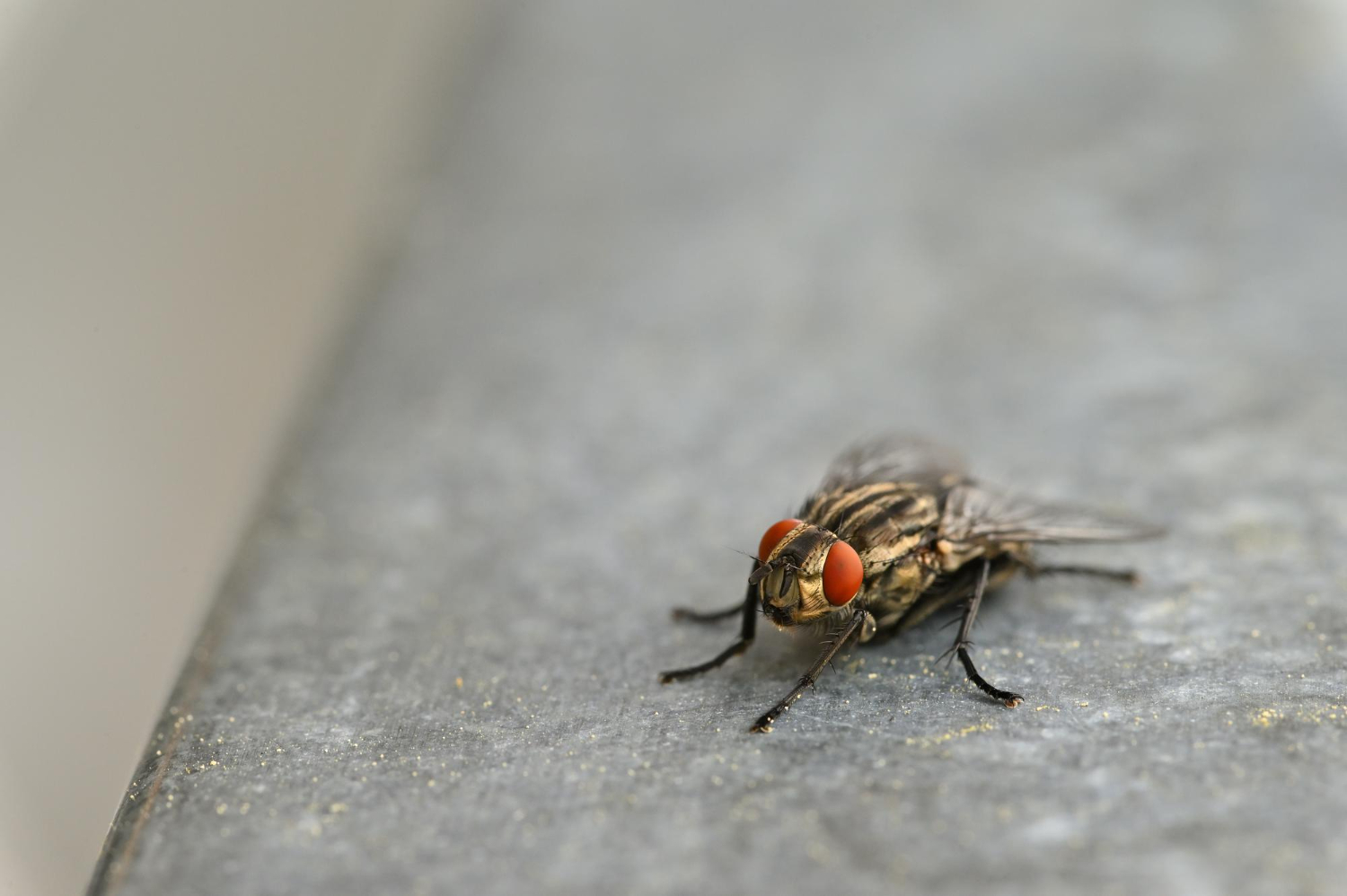Flies are unwanted creatures that can quickly invade our homes or gardens. Their presence is often synonymous with discomfort, dirt and even a health hazard. In order to get rid of these pests, many people turn to natural solutions. But what natural repellents are really effective against flies?
Ecological and effective alternatives to get rid of flies:
Flies are attracted to various substances and odors. By using natural repellents based on these ingredients, it is possible to keep them away in an effective and environmentally friendly way. Here are some proven solutions:
- Basil essential oil:
Basil is a commonly used condiment in cooking, but did you know that it can also be used as a natural fly repellent? Basil essential oil, diluted in water, can be sprayed in rooms infested by these insects. Its powerful odor effectively repels flies. In addition, basil has antibacterial and antiviral properties, making it a great ally for maintaining a healthy environment. - Mint :
Mint is a plant known for its fresh and pleasant smell, but it is also a natural solution to repel flies. You can grow mint plants in your garden or simply place a bouquet of fresh mint in rooms where flies are present. The strong smell of mint will deter these insects from approaching. - White vinegar:
White vinegar is a versatile ingredient often used for cleaning and disinfecting. But did you know that it can also be used as a natural fly repellent? By mixing white vinegar with water in a spray bottle, you can spray this solution into infested areas. The strong smell of vinegar will effectively repel flies. - Cloves:
Cloves are known for their strong scent and their use in cooking. But they are also a very effective natural fly repellent. By placing them in dishes with water or infusing them in a saucepan, the strong smell of cloves will discourage these insects from entering the rooms.
It is important to note that these natural repellents can be used alone or in combination, depending on the infestation and the duration of the desired action. In addition, it is advisable to renew the application regularly in order to maintain their effectiveness.
Natural traps, a complementary solution
In addition to the natural repellents mentioned above, it is also possible to turn to natural traps to get rid of flies. These solutions, often simple to implement and economical, are an additional ecological option to consider.
Apple cider vinegar fly trap
Apple cider vinegar is a natural product that is very attractive to flies. They are attracted by its strong, sweet smell. To make a trap, simply pour cider vinegar into a container, cover the opening with plastic film with small holes. Flies will be attracted to the smell and will not be able to come out once inside the container.
Sugar and yeast trap
Sugar and yeast also produce a strong attraction to flies. To make this trap, mix water, sugar and yeast in a container. The fermentation of sugar by yeast will produce carbon dioxide, which attracts flies. Just like with the apple cider vinegar trap, cover the container with plastic film with small holes in it.
Ripe fruit trap
Flies are also attracted to ripe and rotting fruit. You can use this fact to make a simple and effective trap. Place a ripe fruit in a container and cover it with plastic wrap with holes in it. Flies will be attracted by the smell of the fruit and will find themselves trapped inside the container.
These natural traps can be placed near areas frequented by flies, such as the kitchen or the trash can. They are particularly useful when an infestation is already underway. However, they do not replace the use of natural repellents, which can prevent the appearance of flies. Combining these two approaches can therefore be an effective solution to get rid of flies in an ecological way.
Precautions to Take with Natural Repellents and Traps
Precautions for Pets
If you have pets at home, it is crucial to take certain precautions when using natural fly repellents. For example, basil essential oil can be toxic to cats and dogs if ingested in large quantities. So be sure to place these repellents out of reach of your animals and to ventilate the rooms well after spraying essential oils.
Precautions for Children
Likewise, if you have young children at home, make sure any fly traps you set are out of their reach. Children are naturally curious and might be tempted to touch or even taste the substances used in traps, such as apple cider vinegar or sugar.
Precautions for Plants
If you use plants like mint to repel flies, make sure they are placed in areas where they will not be affected by other elements in your garden. For example, mint can be invasive and choke out other plants if left uncontrolled.
Natural Repellents to Avoid
It is also important to note that not all natural repellents are effective, and some may even be counterproductive. For example, some websites recommend using lemongrass to repel flies. However, there is no solid scientific evidence to support this claim. Additionally, the smell of lemongrass can actually attract other types of insects.
It is crucial to emphasize that the best way to prevent a fly infestation is to maintain a high level of hygiene in your home and garden. Make sure trash cans are tightly closed and emptied regularly, food is properly stored, and surfaces are cleaned regularly. A clean home is less likely to attract flies and makes it easier to control any infestation that may arise.













